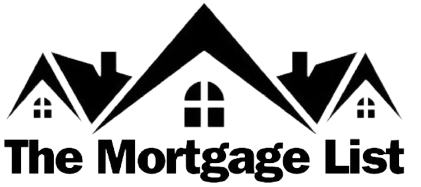Introduction Study Guide for Mortgage Loan Officers
In the realm of real estate financing, mortgage loan officers play a pivotal role. They act as intermediaries between lenders and borrowers, helping individuals secure the funds necessary to purchase their dream homes. However, navigating the complexities of the mortgage industry requires specialized knowledge and expertise. This study guide aims to provide aspiring mortgage loan officers with a comprehensive understanding of the profession, covering essential topics ranging from mortgage basics to industry regulations and career development strategies.
Understanding Mortgage Basics
Definition of a Mortgage
At its core, a mortgage is a type of loan specifically used to finance the purchase of real estate. It involves borrowing money from a lender, typically a bank or mortgage company, with the property itself serving as collateral for the loan.
Types of Mortgages
Mortgages come in various forms, each offering distinct terms and conditions to borrowers. Common types include fixed-rate mortgages, adjustable-rate mortgages (ARMs), and government-insured mortgages such as those offered by the Federal Housing Administration (FHA) and the Department of Veterans Affairs (VA).
Mortgage Process Overview
The process of obtaining a mortgage involves several steps, including pre-approval, application, underwriting, and closing. Understanding each stage is crucial for mortgage loan officers to effectively guide their clients through the process.
Licensing and Education Requirements
NMLS Licensing
Mortgage loan officers are required to obtain a license through the Nationwide Mortgage Licensing System (NMLS). This involves completing pre-licensure education, passing a comprehensive exam, and meeting ongoing continuing education requirements.
Educational Background Needed
While specific educational requirements may vary by state and employer, a background in finance, economics, or a related field is typically beneficial for aspiring mortgage loan officers. Additionally, many professionals pursue additional certifications and training to enhance their knowledge and skills.
Continuing Education
The mortgage industry is constantly evolving, with regulations and market conditions subject to change. As such, mortgage loan officers must commit to ongoing professional development to stay abreast of industry trends and updates.

Loan Products and Programs
Conventional Loans
Conventional loans are not insured or guaranteed by the federal government and typically require higher credit scores and down payments compared to government-insured loans.
FHA Loans
FHA loans are insured by the Federal Housing Administration and are popular among first-time homebuyers due to their more lenient credit and down payment requirements.
VA Loans
VA loans are designed for eligible veterans, active-duty service members, and their families, offering favorable terms and low or no down payment options.
USDA Loans
USDA loans, backed by the U.S. Department of Agriculture, are available to homebuyers in rural areas and offer competitive interest rates and flexible eligibility criteria.
Mortgage Industry Regulations
Consumer Financial Protection Bureau (CFPB)
The CFPB is tasked with enforcing federal consumer financial laws and regulations, including those related to mortgages. Mortgage loan officers must adhere to CFPB guidelines to ensure fair and transparent lending practices.
Real Estate Settlement Procedures Act (RESPA)
RESPA regulates the real estate settlement process, requiring lenders to provide borrowers with upfront disclosures about loan terms, closing costs, and potential fees.
Truth in Lending Act (TILA)
TILA mandates that lenders disclose key information about loan terms and costs to borrowers, including annual percentage rates (APRs) and total loan amounts.
Sales and Marketing Strategies
Building a Client Base
Successful mortgage loan officers excel at networking and building relationships within their communities. Establishing trust and credibility is essential for attracting and retaining clients.
Effective Communication Skills
Clear and concise communication is paramount in the mortgage industry. Mortgage loan officers must be able to explain complex financial concepts in a way that resonates with clients and instills confidence in their decision-making.

Utilizing Technology for Marketing
In today’s digital age, mortgage loan officers can leverage various online platforms and tools to expand their reach and generate leads. From social media marketing to email campaigns, technology plays a crucial role in modern sales and marketing strategies.
Mortgage Loan Processing
Application Process
The mortgage application process involves gathering essential documentation, such as income statements, tax returns, and credit reports, to assess the borrower’s financial health and eligibility for a loan.
Underwriting
Once the application is submitted, the lender conducts a thorough review of the borrower’s financial information to determine their creditworthiness and assess the risk associated with the loan.
Closing Process
The closing process involves finalizing the loan agreement and transferring ownership of the property from the seller to the buyer. Mortgage loan officers play a key role in facilitating this process and ensuring a smooth transition for all parties involved.
Compliance and Ethics
Fair Lending Practices
Mortgage loan officers are bound by laws prohibiting discrimination in lending based on factors such as race, ethnicity, gender, and religion. Upholding fair lending practices is not only a legal requirement but also essential for maintaining integrity and trust within the community.
Avoiding Conflicts of Interest
Mortgage loan officers must act in the best interests of their clients at all times, avoiding any conflicts of interest that could compromise their impartiality or integrity.
Data Protection and Privacy Laws
Safeguarding sensitive customer information is paramount in the mortgage industry, given the abundance of personal and financial data involved in the lending process. Mortgage loan officers must adhere to strict data protection and privacy laws to protect their clients’ confidentiality and security.
Industry Trends and Updates
Current Market Conditions
Staying informed about current market trends, interest rates, and housing inventory is essential for mortgage loan officers to provide informed advice and guidance to their clients.
Emerging Technologies
Advancements in technology, such as artificial intelligence and automation, are reshaping the mortgage industry, streamlining processes and improving efficiency for both lenders and borrowers.
Regulatory Changes
Mortgage loan officers must stay abreast of regulatory changes and updates that may impact lending practices, compliance requirements, and consumer protections.
Career Development Tips
Networking Opportunities
Networking with industry professionals, attending conferences, and joining professional associations are excellent ways for mortgage loan officers to expand their knowledge base and grow their professional network.
Professional Certifications
Obtaining relevant certifications, such as the Certified Mortgage Banker (CMB) or Certified Mortgage Planning Specialist (CMPS) designation, can enhance credibility and open doors to career advancement opportunities.
Continuing Education Resources
Numerous resources are available for mortgage loan officers seeking to further their education and professional development, including online courses, workshops, and seminars.
Success Stories and Case Studies
Highlighting Successful Mortgage Loan Officers
Sharing success stories and case studies of top-performing mortgage loan officers can inspire and motivate aspiring professionals, providing valuable insights into effective strategies and best practices.
Learning from Real-World Experiences
Examining real-world scenarios and learning from both successes and failures can help mortgage loan officers refine their skills and adapt to changing market dynamics.
Resources for Further Learning
Books and Publications
Books, journals, and industry publications offer valuable insights into mortgage lending practices, market trends, and regulatory updates.
Online Courses and Webinars
Online courses and webinars provide convenient and flexible learning opportunities for mortgage loan officers to enhance their skills and stay current with industry developments.

Industry Associations and Forums
Joining industry associations and participating in online forums and discussion groups enable mortgage loan officers to connect with peers, share knowledge, and exchange ideas.
Common Challenges and Solutions
Dealing with Rejection
Rejection is an inevitable part of the mortgage lending process. Mortgage loan officers must develop resilience and perseverance to overcome setbacks and maintain a positive attitude.
Handling Difficult Clients
Effective communication and conflict resolution skills are essential for managing challenging client interactions and resolving issues in a professional manner.
Overcoming Market Fluctuations
The mortgage industry is subject to cyclical fluctuations influenced by factors such as economic conditions, interest rates, and housing market trends. Adapting to changing market dynamics and diversifying revenue streams can help mortgage loan officers weather downturns and capitalize on opportunities for growth.
Building a Personal Brand
Importance of Branding in the Mortgage Industry
A strong personal brand can differentiate mortgage loan officers from their competitors and position them as trusted advisors in the eyes of clients and referral partners.
Tips for Building a Strong Personal Brand
Consistency, authenticity, and authenticity are key to building a compelling personal brand. Mortgage loan officers should leverage their unique strengths and values to create a distinct identity that resonates with their target audience.
Conclusion
In conclusion, becoming a successful mortgage loan officer requires a combination of specialized knowledge, ethical integrity, and effective communication skills. By mastering the fundamentals of mortgage lending, staying abreast of industry trends, and continuously investing in personal and professional development, aspiring professionals can thrive in this dynamic and rewarding field.
FAQs (Frequently Asked Questions)
- What does a mortgage loan officer do?
- A mortgage loan officer assists individuals in securing financing for real estate purchases by evaluating their financial situation, recommending loan products, and guiding them through the application and closing process.
- What qualifications do I need to become a mortgage loan officer?
- Requirements vary by state and employer, but most mortgage loan officers need to obtain a license through the Nationwide Mortgage Licensing System (NMLS) and have a background in finance or a related field.
- How do mortgage loan officers generate leads?
- Mortgage loan officers generate leads through various channels, including networking, referrals, advertising, and digital marketing strategies such as social media and email campaigns.
- What are the biggest challenges facing mortgage loan officers?
- Common challenges include navigating regulatory compliance, managing client expectations, and adapting to market fluctuations and economic uncertainty.
- How can I advance my career as a mortgage loan officer?
- Advancing your career may involve obtaining additional certifications, expanding your professional network, and staying informed about industry trends and best practices.
Read More:>

